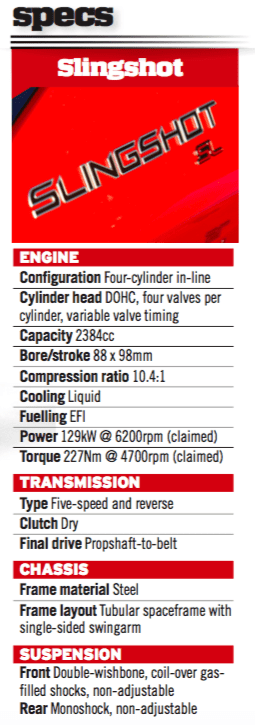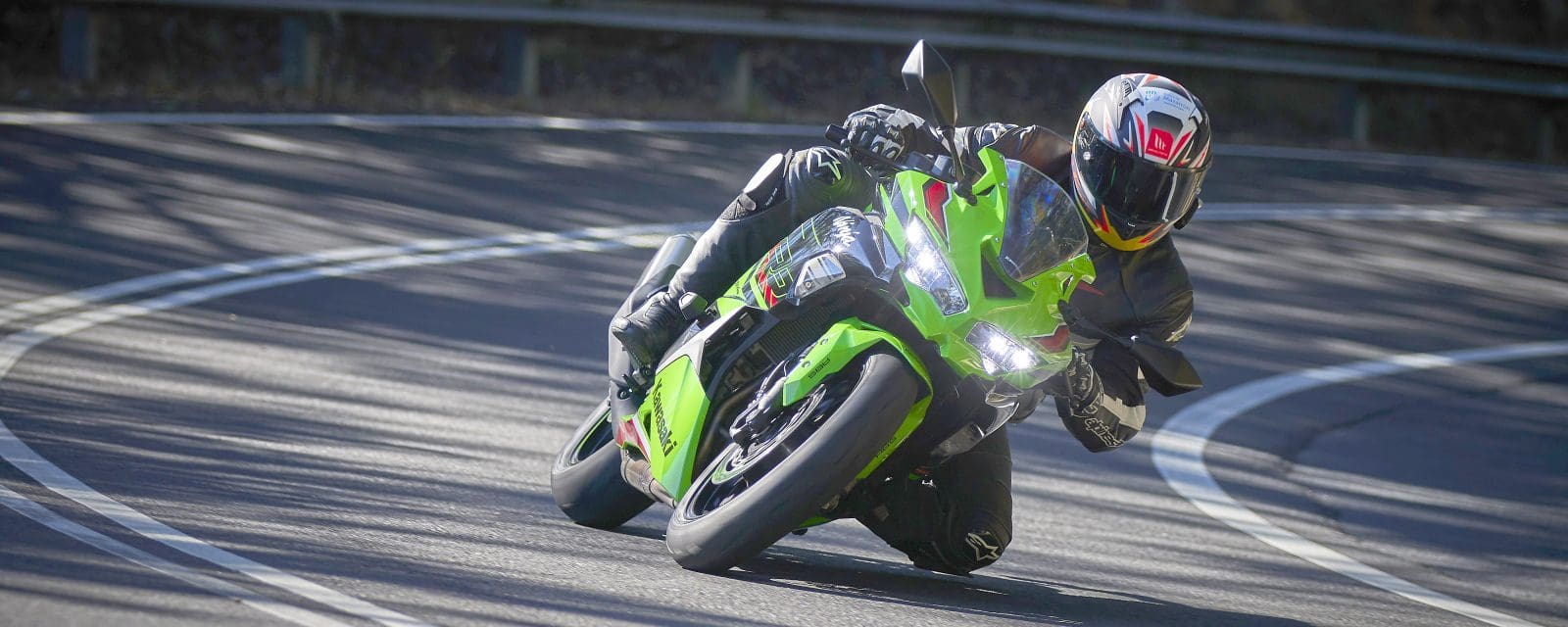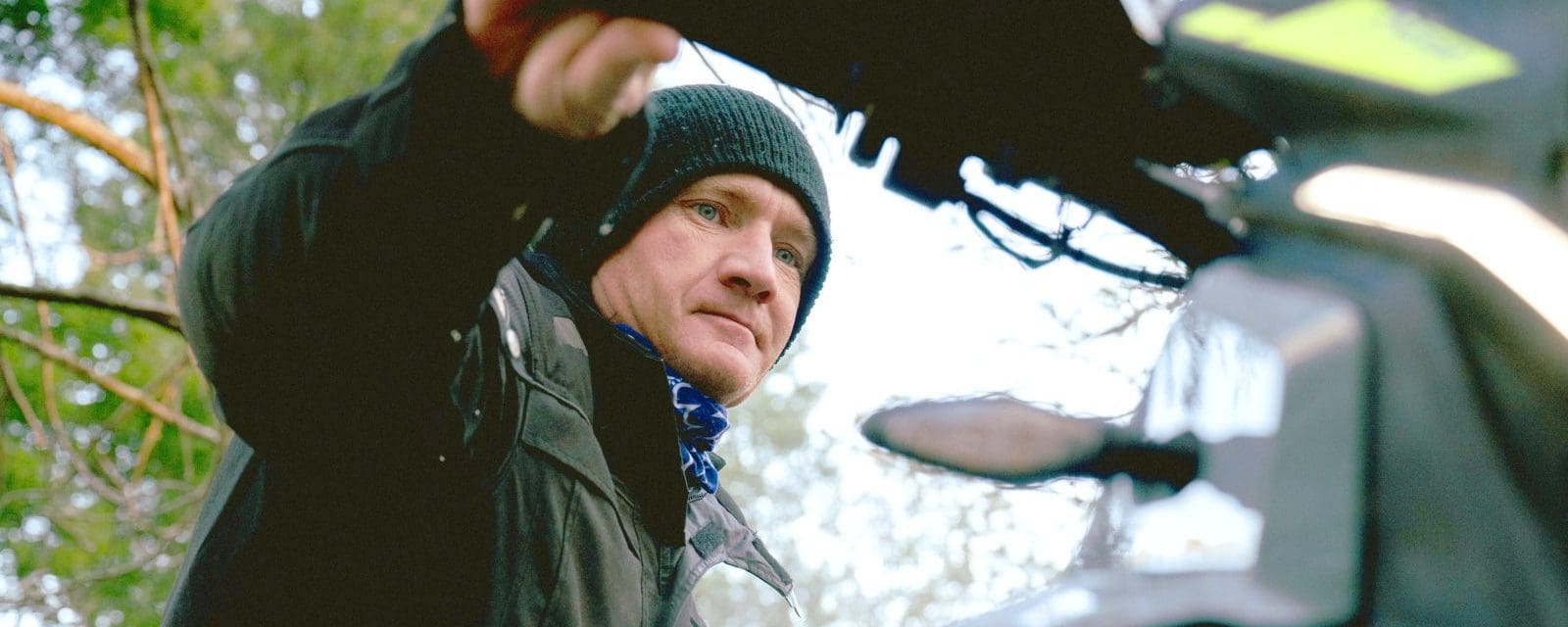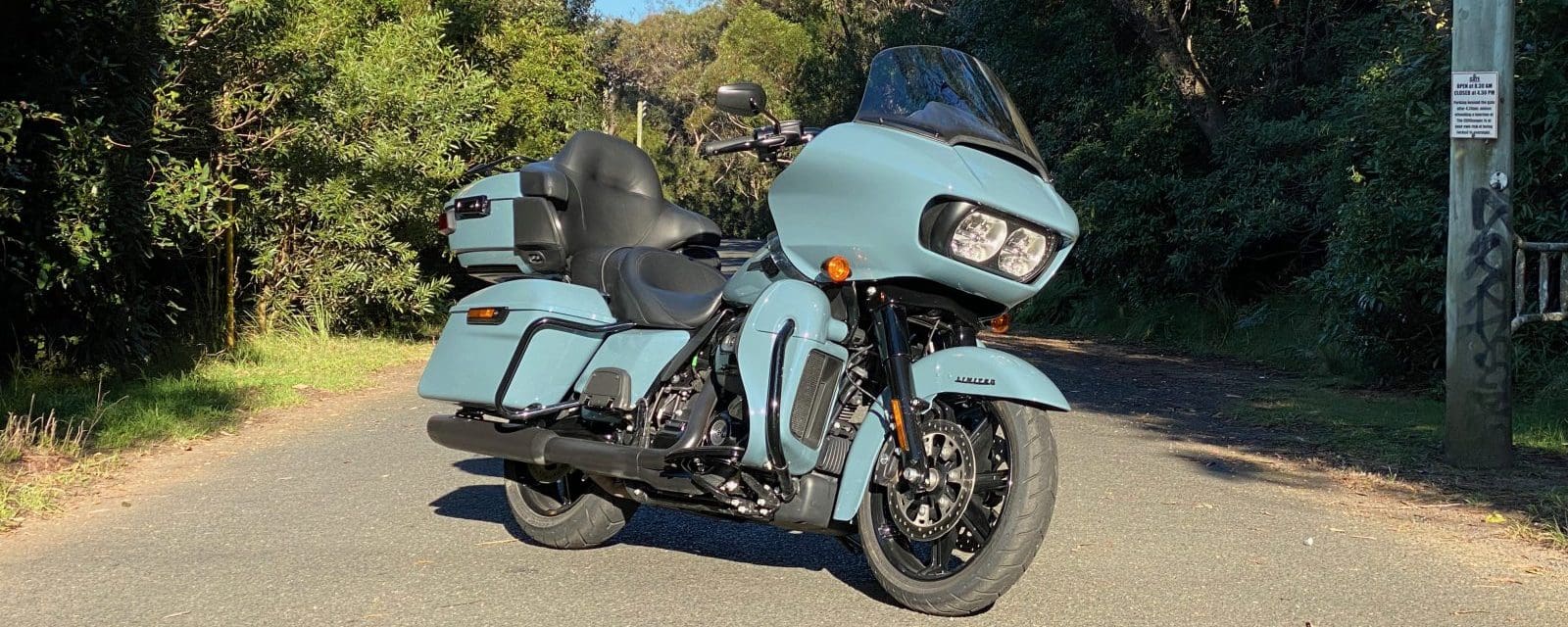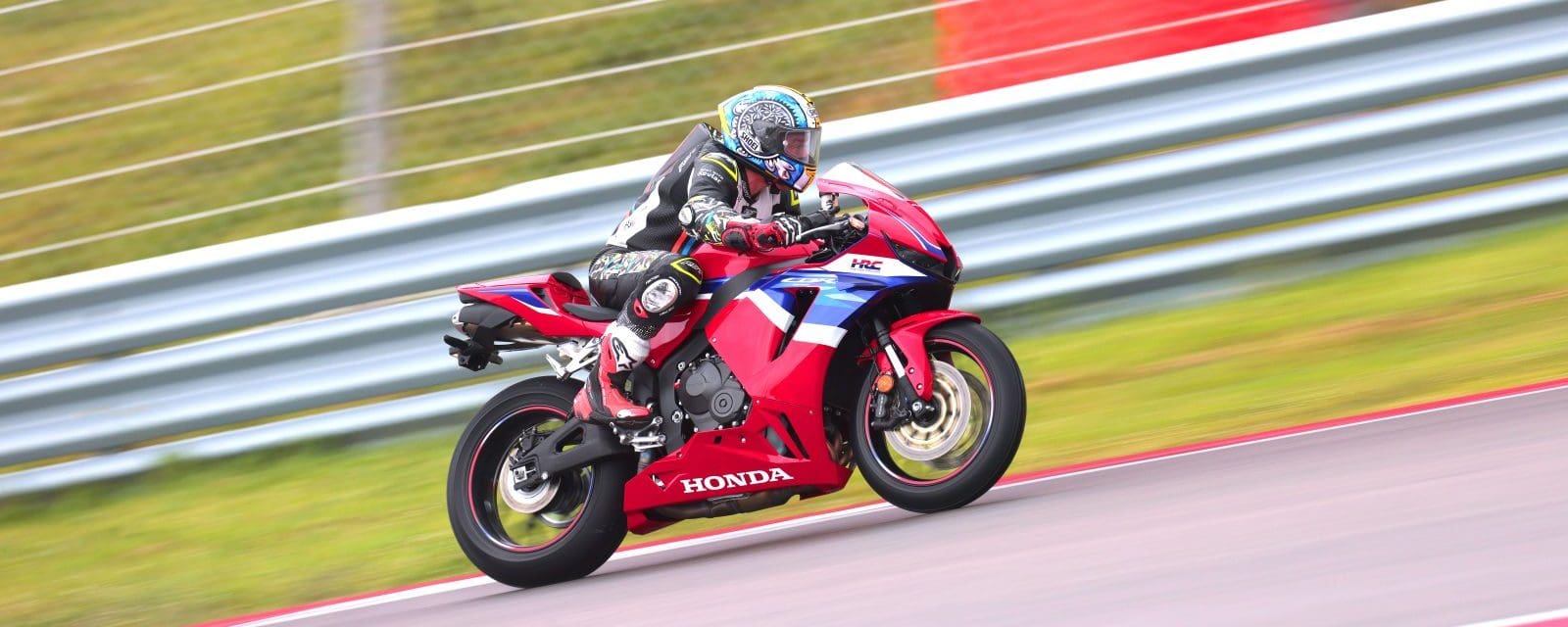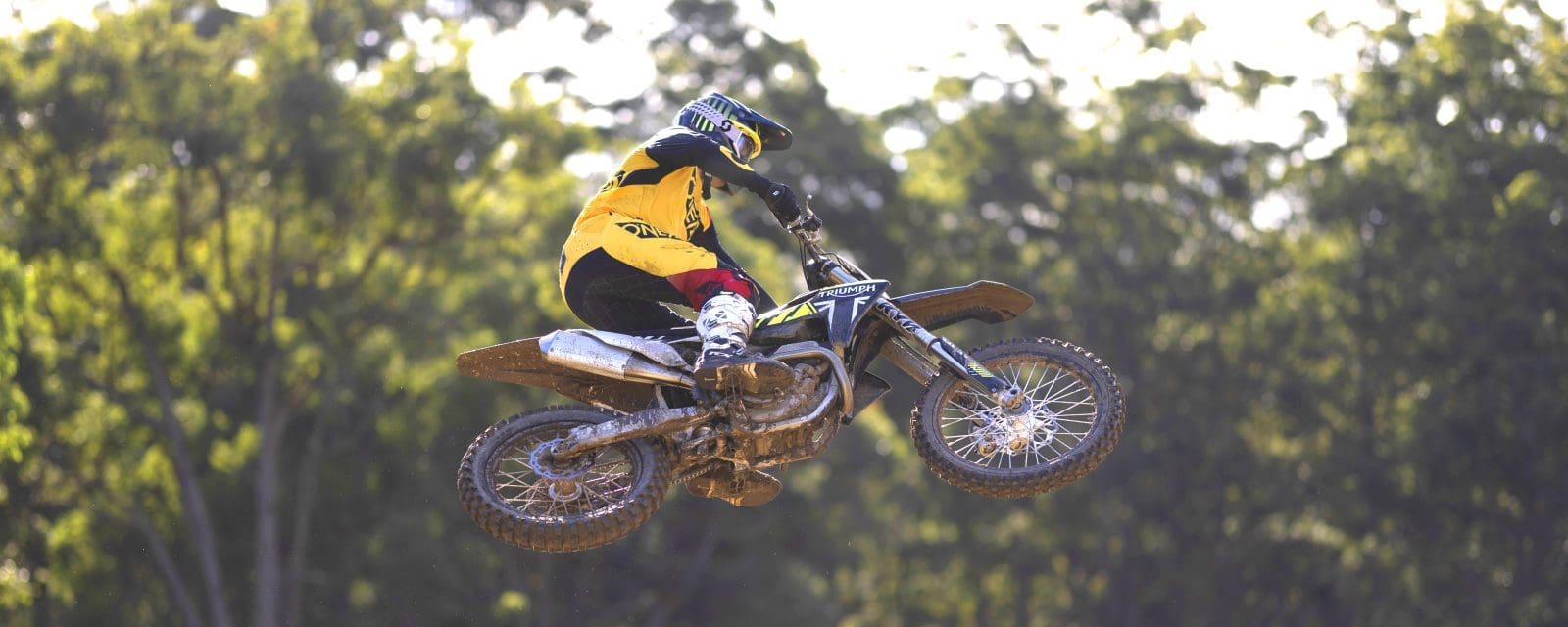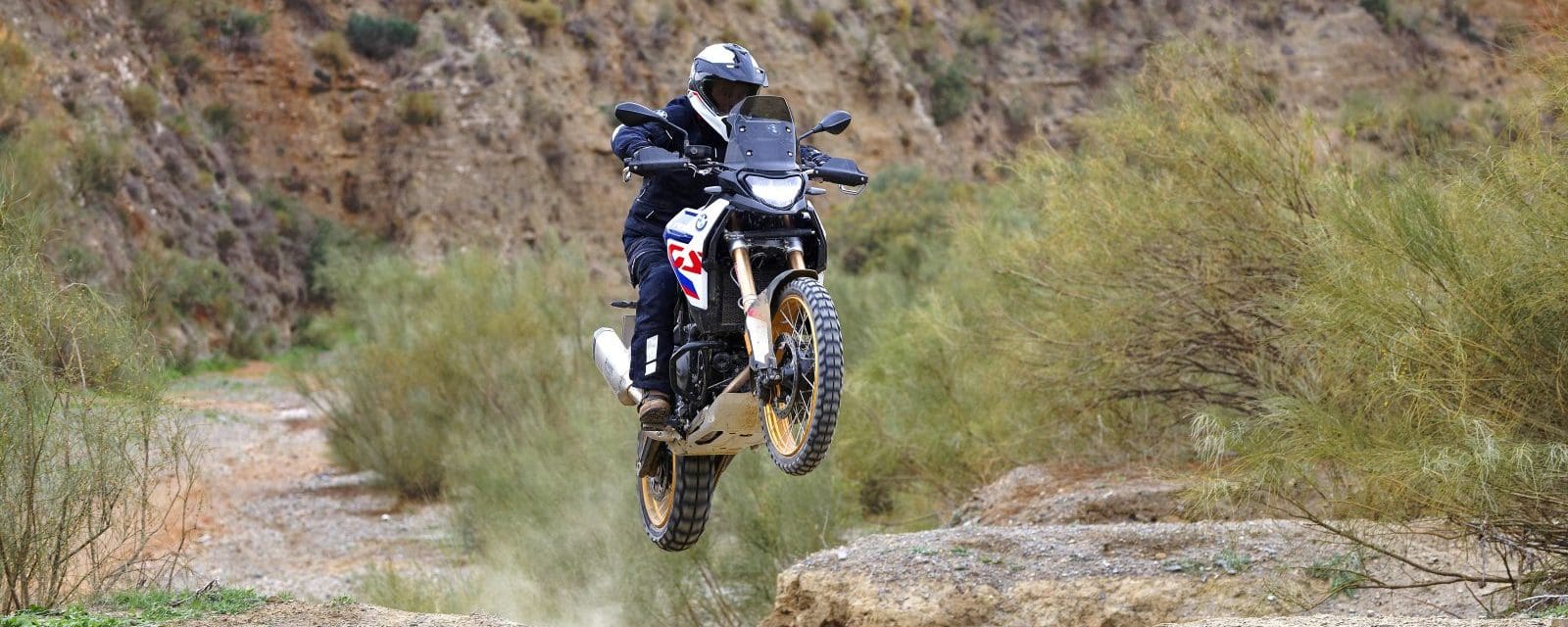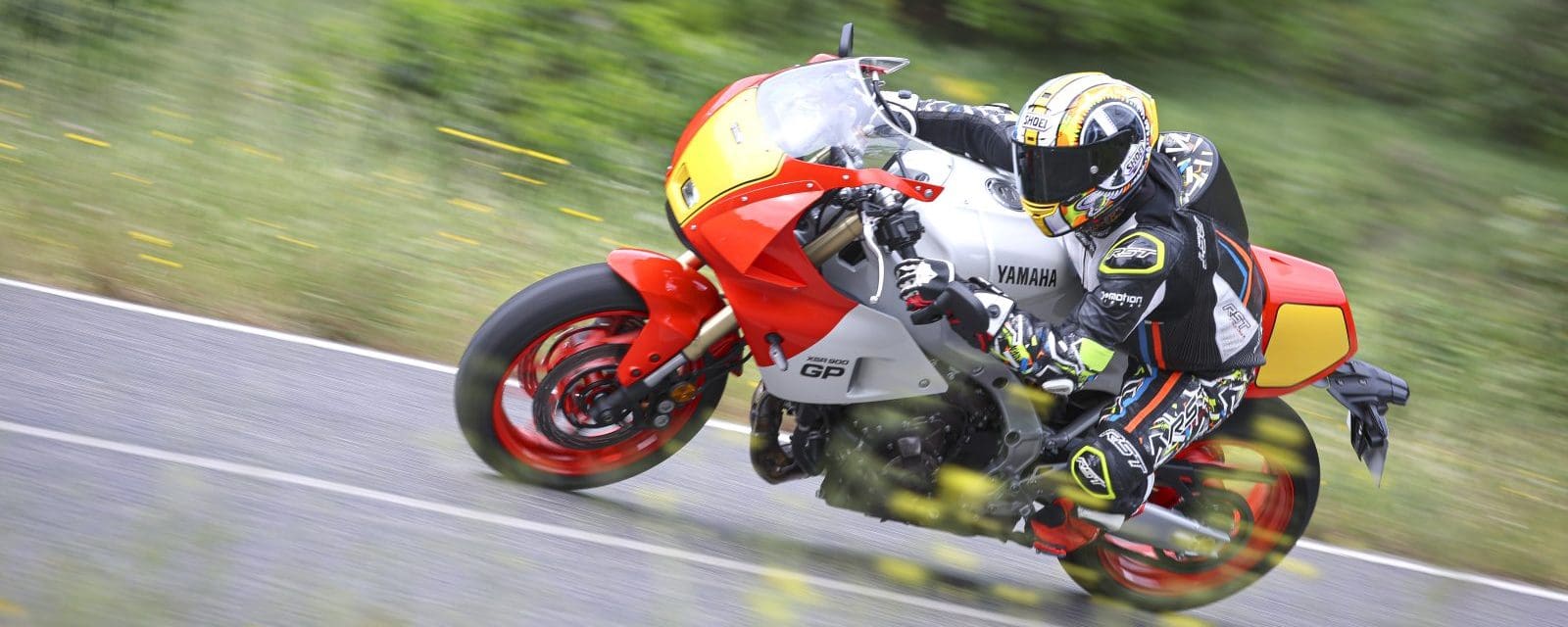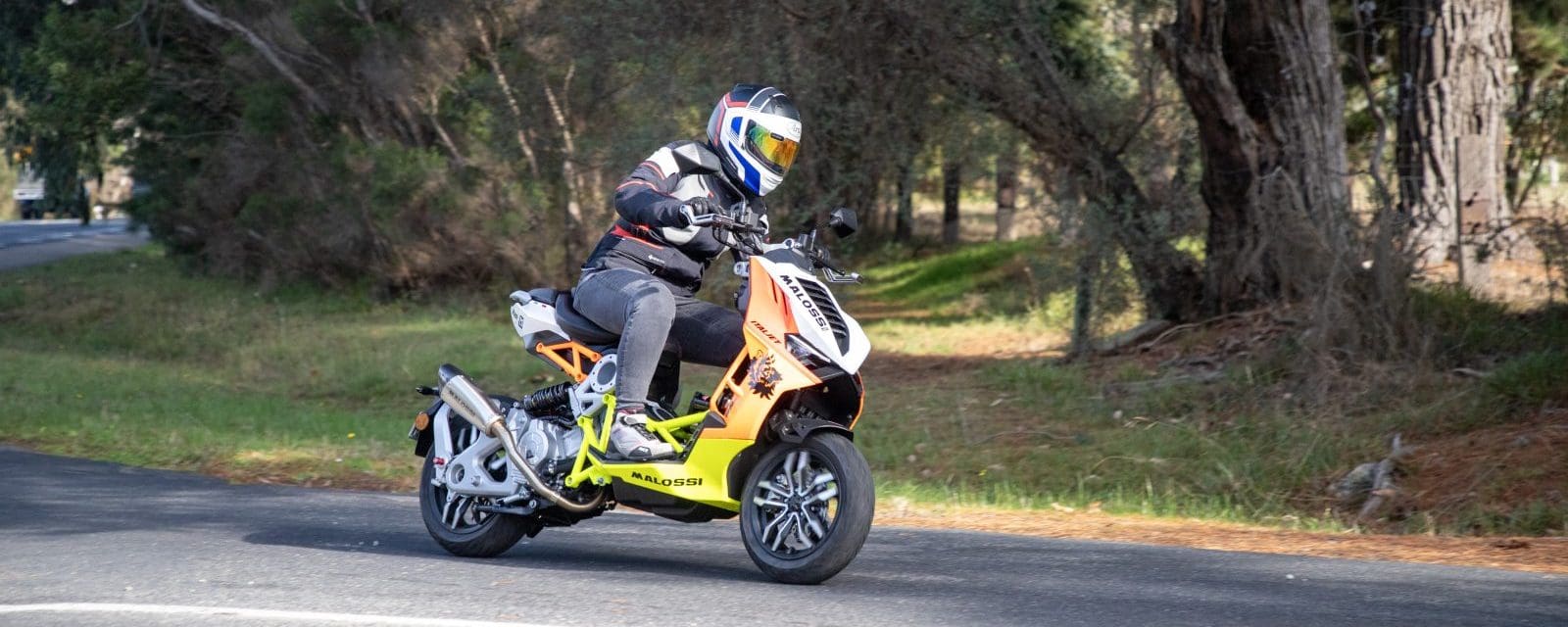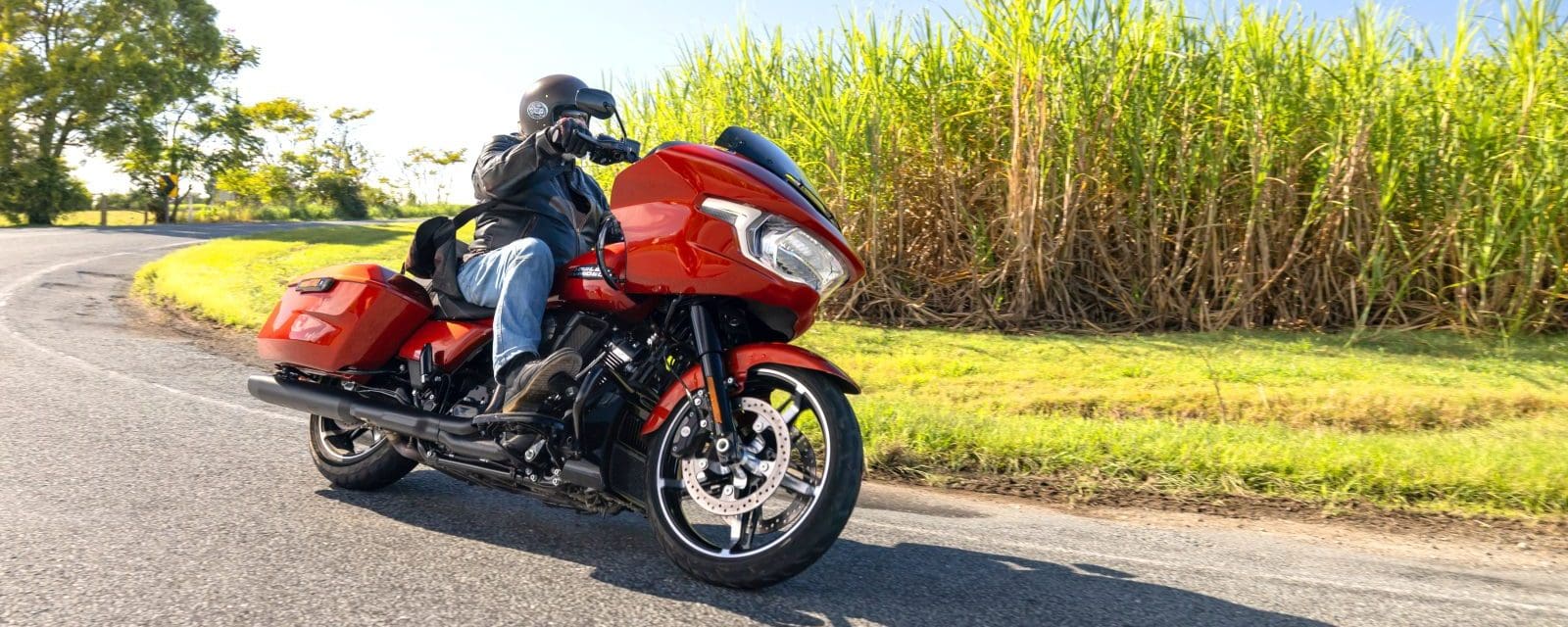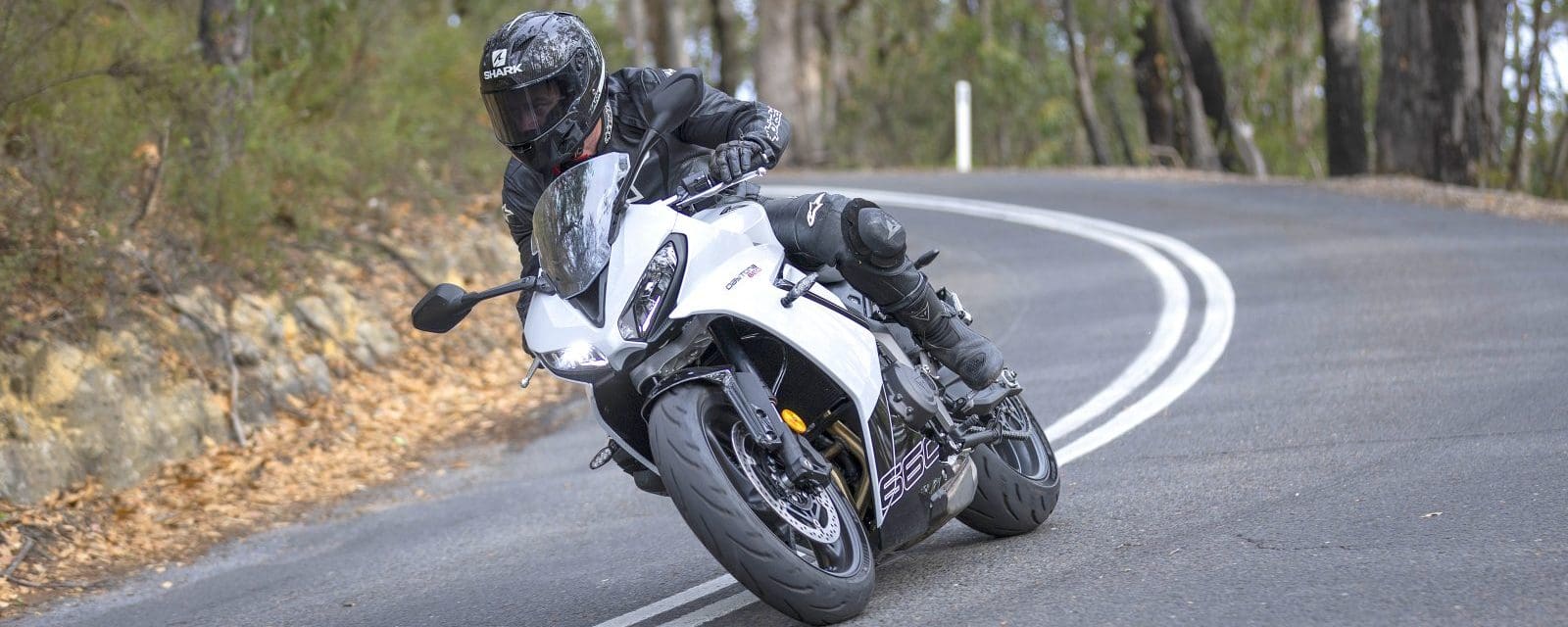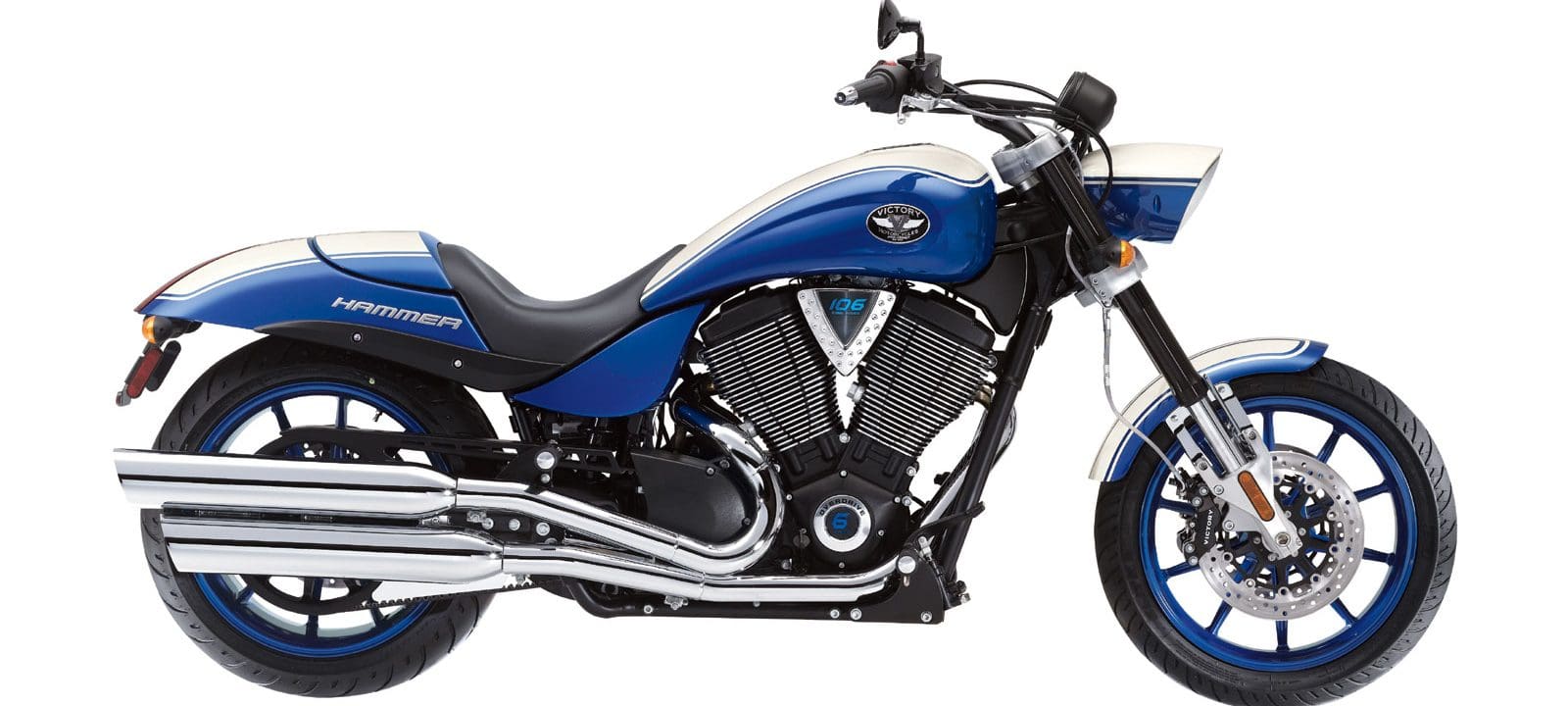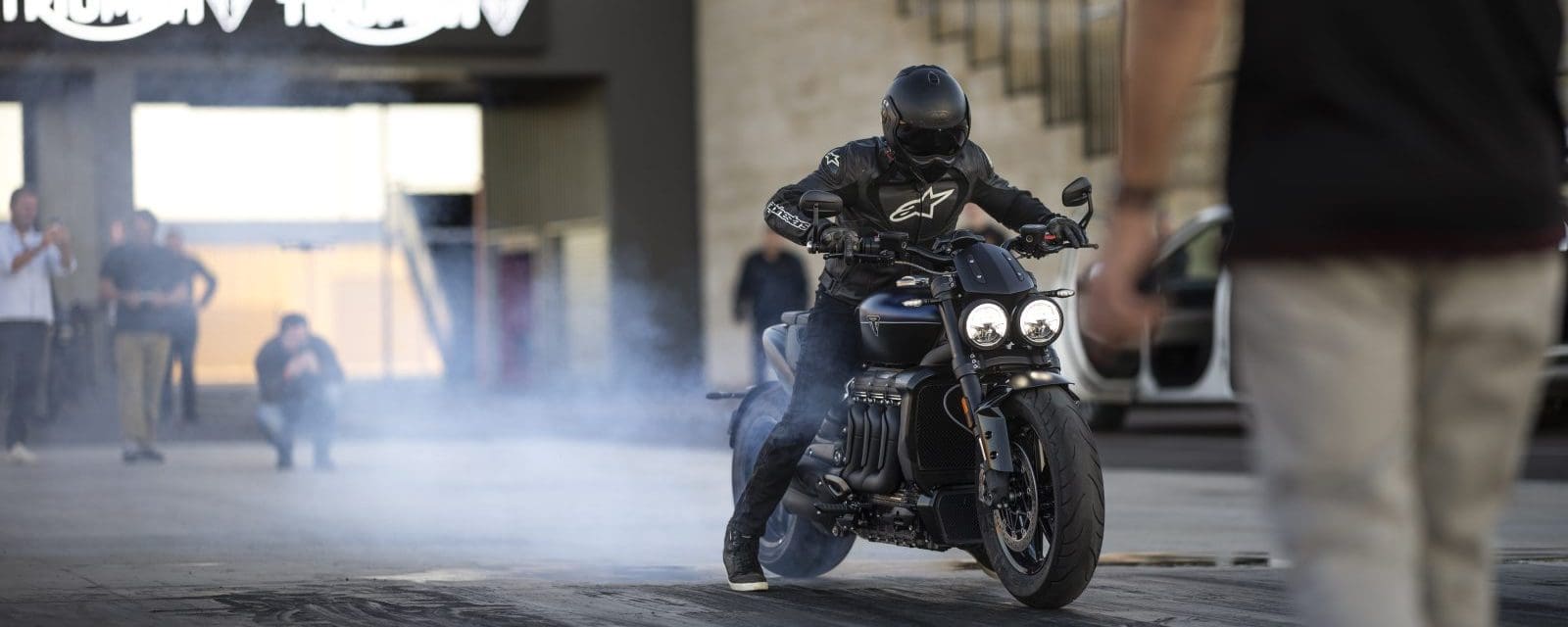TECHNICALLY THE Polaris Slingshot is a trike, but in reality it is about as far removed from one as you can possibly get. This is a three-wheeled sportscar that’s shorter than a Mazda MX-5 yet with a front end the same width as a Lamborghini Aventador and a rear wheel driven by a 2.4-litre car engine. What happens when you have supercar front-end grip levels and a single rear wheel trying to deal with all this power? Powerslides – and lots of them!
Pictures simply don’t do the Slingshot justice. In the flesh it is insanely styled and everywhere you go people stop, stare and reach for their phone cameras.
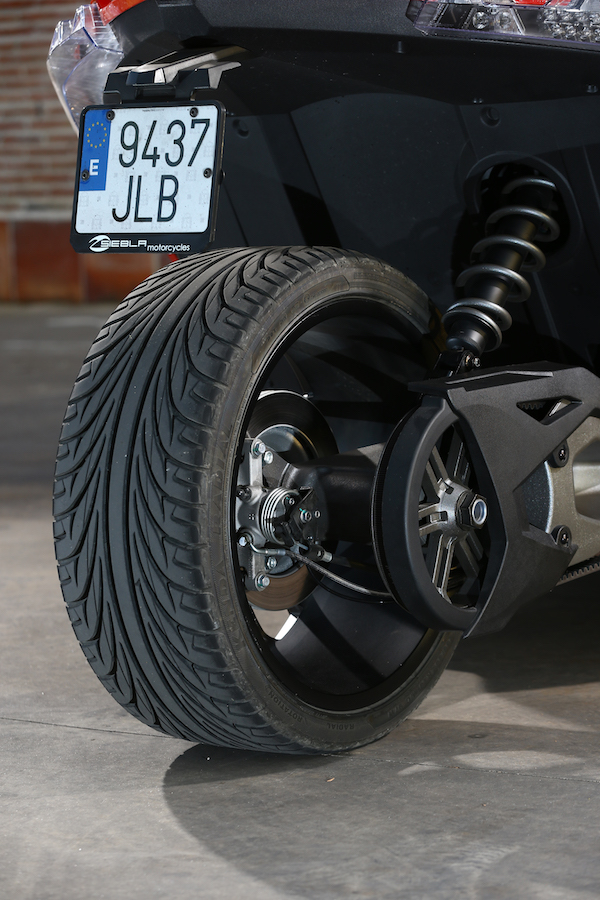
In the cab the driver and passenger get surprisingly comfortable waterproof seats, there is a six-speaker sound system with Bluetooth connectivity, two lockable storage compartments located behind the seats, a glovebox, reversing camera and, most importantly, a big red starter button. Everyone loves a big red starter button…
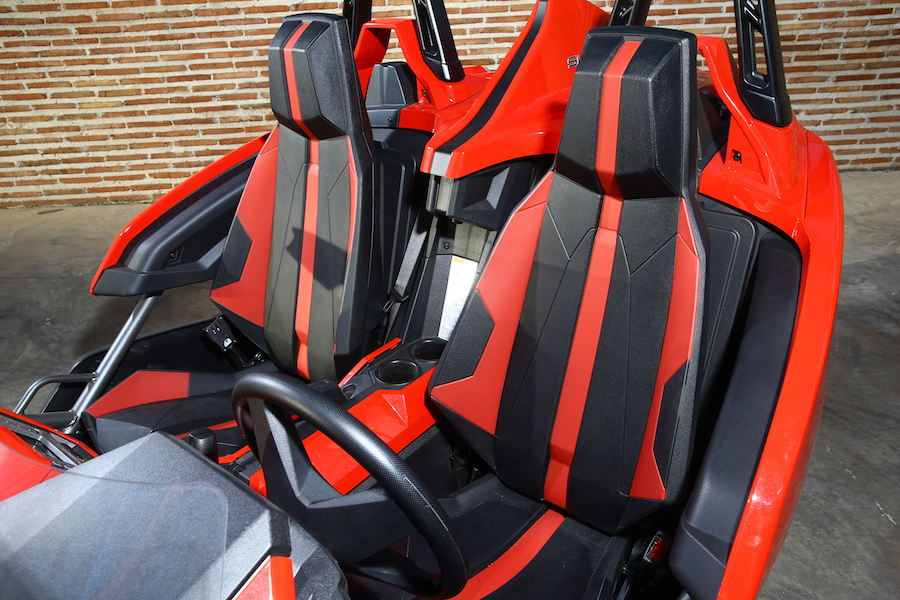
Push that red button and you get the kind of direct feeling you have on a motorcycle when the engine fires up. That engine is a normally aspirated four-cylinder twin-cam sourced from General Motors that makes 129kW with 227Nm of torque, which is sent to the single rear wheel via a driveshaft and carbon fibre-reinforced belt. With a wet weight of less than 800kg, that’s plenty to get things happening.
Use the standard car H-pattern box (with a reverse gear opposite fifth) to select first, nail the throttle and by the time you get into third the rear might have stopped spinning. Possibly. While this sounds dramatic, some clever electronics ensure it won’t all end in tears.
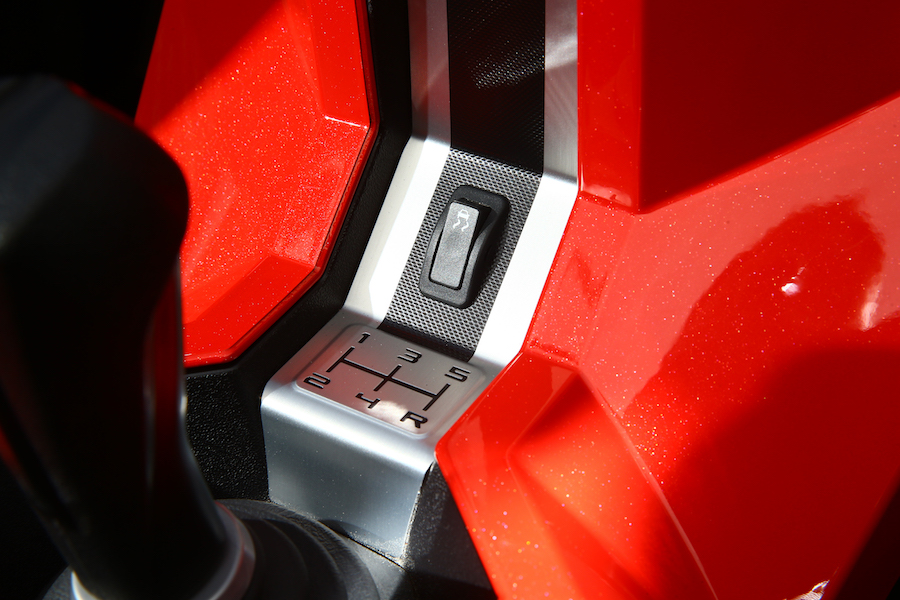
Give the Slingshot too much gas and the traction control monitors the rear wheel’s speed and also the steering rack’s input to calculate if you are about to fire yourself into a ditch. If it deems you’re just having a laugh, it allows the rear to keep spinning. If, however, it sees the rear is too far out of line, it applies a bit of brake to one or both of the front wheels and curbs the power to bring it all automatically back into line. This makes it extremely easy to not only leave black lines up the road, but also corner like a pro.
With its huge 18-inch front wheels set 1755mm apart (which makes it nerve-wracking on narrow roads), the Slingshot is blessed with masses of front-end grip and when you hit the bends its width makes sense. The Slingshot’s front-end hangs on in corners like a sportscar, yet doesn’t feel harsh on its suspension, which is a surprise. However, the best part happens when you exit corners.
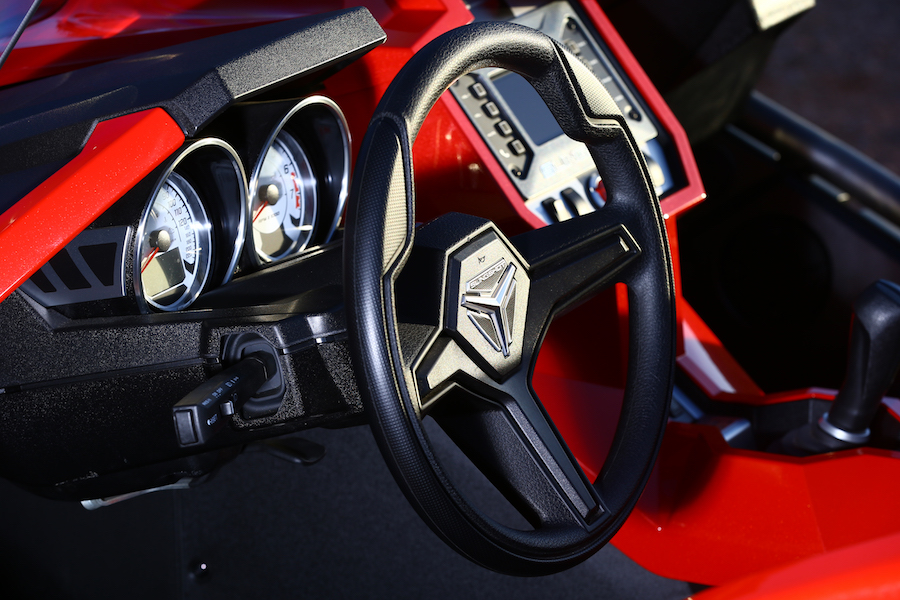
Feed the power back in hard when in second or third gear and the rear will step out of line and then be held there by the TC system, allowing you to drift sideways looking like a driving hero. While this certainly isn’t the quickest way out of a bend (a lightweight four-wheeler would destroy it), it’s really good fun, and that’s what the Slingshot is all about. This trike is the only vehicle I have ‘ridden’ that has the same giggle factor as a bike and that’s simply down to the fact it is so easy to play the fool in.
Sadly, the Slingshot doesn’t look like coming to Australia any time soon. Although there are three-wheelers on the market here – including the bike-like Can-Am Spyder and the car-like Morgan Three-Wheeler – Polaris doesn’t yet produce the Slingshot in right-hand drive.
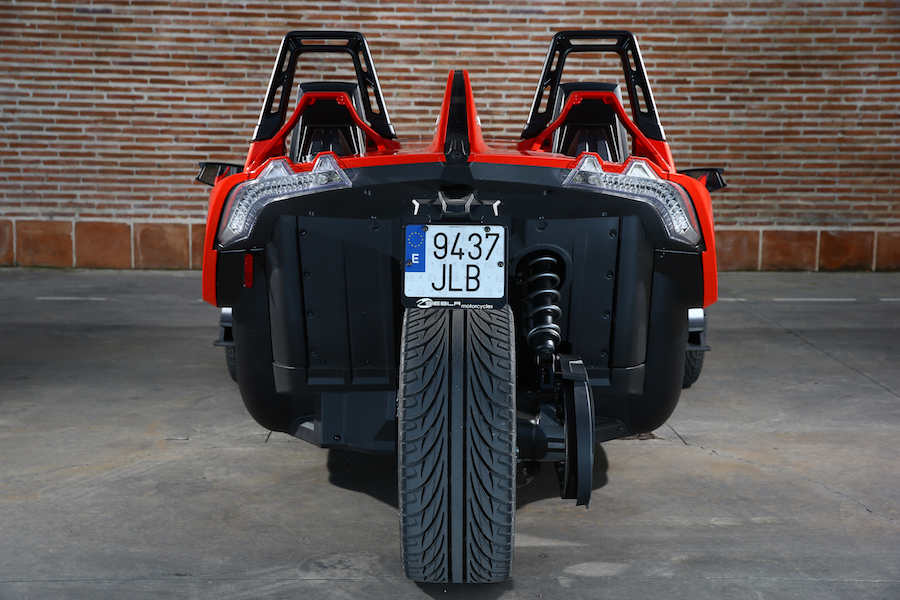
In the meantime, the Slingshot can be seen in action this weekend (Jan 21-22) being tortured by a dozen of the best drivers in the world. The famous international Race of Champions is being held in Miami, Florida and top-spec Slingshot SLRs will be thrown around a special track by the likes of four-time world champ Sebastian Vettel, nine-time Le Mans winner Tom Kristensen, rally ace Petter Solberg and Indy 500 winners Juan-Pablo Montoya and Alexander Rossi. They better have plenty of spare rear tyres available…
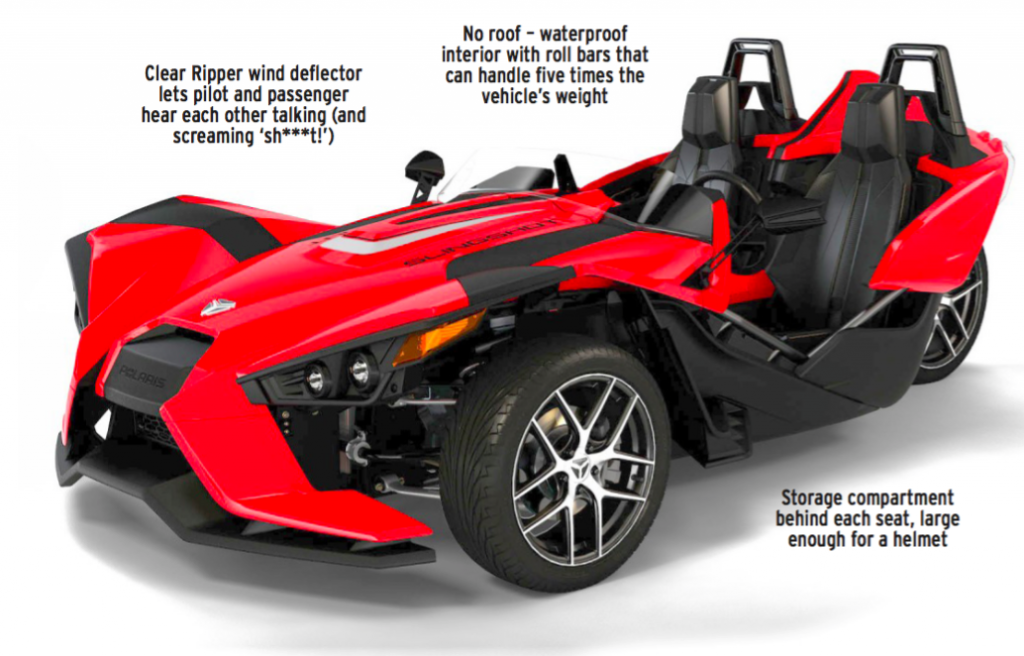
TEST JON URRY PHOTOGRAPHY POLARIS
